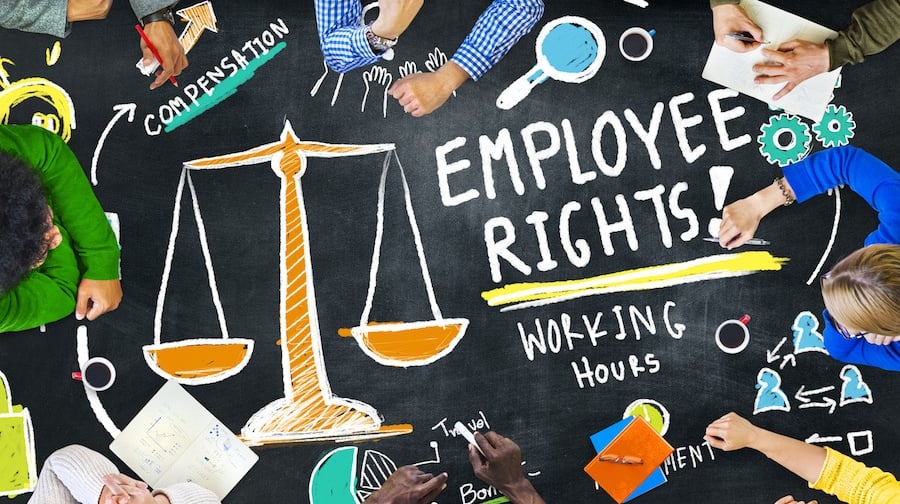Labour Day in Mauritius: A Time to Reflect and Rethink Workers’ Rights
A fresh look at workers’ rights in Mauritius — from their hard-fought history to modern-day wins and ongoing challenges. As Labour Day approaches, we explore what’s working, what still needs fixing, and how Mauritius can build more inclusive, future-ready workplaces.
4/29/20253 min read


As Labour Day approaches, it’s a good time to pause and look back at how far Mauritius has come in protecting workers’ rights — and where there’s still room to do better.
A Quick Look Back
In Mauritius, workers’ rights were not simply granted, they were fought for, negotiated, and slowly built over decades of activism and reform. In the early 20th century, labourers endured tough conditions with little to no protection. Strikes in the 1930s and 1940s — notably the dockers' strike of 1938 — forced the issue into public consciousness. These movements laid the groundwork for a shift that would accelerate after independence in 1968, when union voices became louder and calls for fairer workplaces gained momentum.
Fast forward to today, and many of those early fights have helped shape our current legal framework, with the Workers’ Rights Act 2019 marking one of the biggest milestones.
Some of its key provisions include:
Stricter limits on fixed-term contracts
Fairer calculations of overtime pay
Defined leave entitlements and travel allowances
Clearer rules around termination of employment
A portable retirement gratuity fund
More defined working hours and protections for rest days
Equal pay for equal work
Protections against workplace violence and harassment
A stronger stance against unfair dismissal
It’s a law that reflects how far we’ve come — but also reveals what still needs attention.
What’s Working and What’s Not
What’s working:
Work-life balance: Leave entitlements, flexitime options, and clearer rules around working hours have created more stability.
Union access: Employees are generally free to form and join unions without excessive barriers.
Gender progress: Companies in certain regulated sectors are now required to have women on their boards — a small but important shift in corporate representation.
Portable benefits: The retirement gratuity fund has helped workers who change jobs avoid losing long-term benefits.
What’s still a challenge:
Enforcement gaps: Informal sector workers and some lower-income employees still face inconsistent application of protections.
Gig and contract work: Freelancers, part-timers, and gig workers often remain outside the umbrella of key rights.
Mental health & harassment: While some frameworks exist, there’s still a lack of clear, enforceable policies across the board — especially in the private sector.
Limited awareness: Many workers (and employers) still don’t fully understand the rights or duties laid out in the law.
Beyond Compliance: What Rights Really Mean
The evolution of labour law isn’t just about paperwork and protections — it’s about people.
True fairness isn’t just about compliance — it’s about culture.
Take mental health. Policies may be in place, but employees often hesitate to speak up, especially around their workplace. The fear of being labelled as “unfit” still overshadows formal protections.
The same goes for harassment: protections are written into law, but unless there’s trust and accountability, silence wins.
So the real question is: Are we building workplaces where rights are lived — or just listed?
What We Can Learn From Others
Mauritius isn’t alone in navigating the future of work. We can take inspiration from how others are evolving:
New Zealand offers robust protections against unfair dismissal and comprehensive anti-bullying laws.
Sweden supports lifelong learning through national upskilling programmes and provides generous parental leave to both mothers and fathers.
Germany embeds mental health into workplace legislation, treating it with the same weight as physical safety.
These aren’t just “nice-to-haves” — they’re signs of how seriously these nations take the wellbeing of their workforce.
Mauritius can aim higher by:
Strengthening protections for gig workers and freelancers
Expanding compliance and inspection capacity
Prioritising workplace wellbeing policies — from mental health to inclusive leadership
Looking Ahead
Mauritius has laid a strong legal foundation. But if we want rights to mean something beyond Labour Day speeches and HR manuals, we need a shift in workplace culture — one that recognises workers as more than just employees, but as people whose dignity is central to a thriving economy.
Laws can only go so far. It’s culture that defines whether those laws are respected, upheld, and felt.
This Labour Day, the conversation shouldn’t just be about what we’ve achieved — but what kind of future we want to build for the Mauritian workforce.
Looking to upskill your team on the Workers’ Rights Act 2019?
We offer customised, sector-specific training to help you stay compliant and confident.
→ Contact us to book a session.


